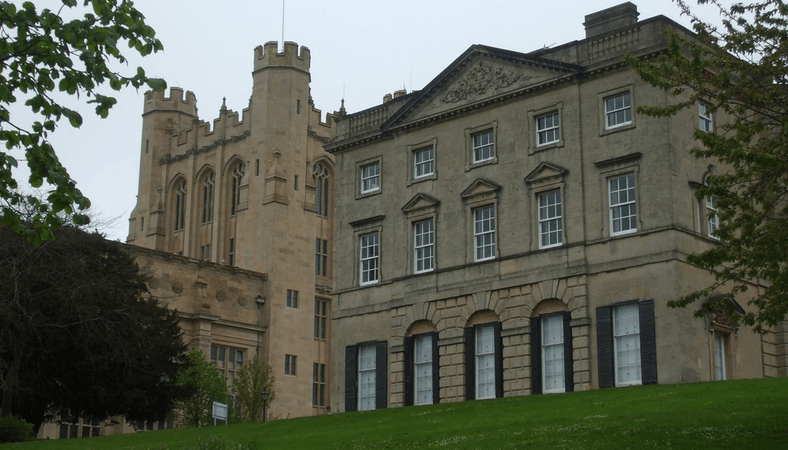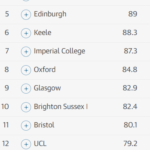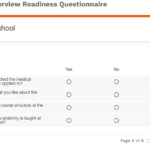Medical School Interview for Bristol University
The University of Bristol is a red brick Russell Group research university in Bristol, England. It received its Royal Charter in 1909, although it can trace its roots to a Merchant Venturers’ school founded in 1595 and University College Bristol, which had been in existence since 1876. The university is organised into six academic faculties composed of multiple schools and departments running over 200 undergraduate courses, largely in the Tyndalls Park area of the city. Bristol is a member of the Russell Group of research-intensive British universities, the European-wide Coimbra Group and the Worldwide Universities Network. It is ranked at position 72 by QS ranking of world universities.
Bristol city is known for has a long maritime history due to it having been an important port for centuries. Many of the buildings and architecture still reflect this seafaring past and its cultural institutions celebrate its rich history, diverse cultural scene, and vibrant community. Bristol is also famous for its contributions to the arts, and is most famous for the renowned artist Banksy hailing from the city. Bristol is also a hub for innovation and technology and is often referred to as the UK’s “smart city” due to its thriving startup scene, with many entrepreneurs and tech companies choosing Bristol as their base. It’s dynamic economy, quality of life, and location not too far from London makes it an attractive place for both students and professionals alike.
University of Bristol Medical School emphasizing evidence-based practice, clinical experience, and interdisciplinary learning over and above more traditional theory. The has strong connections with local hospitals and healthcare providers, which provides medical students with valuable opportunities for real-world clinical experience. The school is involved in cutting-edge research across a wide variety of medical fields, and focuses on translational research which aims to bridge the gap between laboratory discoveries and clinical applications. This transformational approach contributes to the advancement of medical science and accelerates the effect of new discoveries to directly impact patient care and public health.
Medical School Interview Structure
The Bristol Medicine interview process uses the MMI format that is designed to assess the personal qualities and skills necessary to succeed as a doctor. If candidates understand the key competencies Bristol assesses they can increase their chances of performing well in the interview. These competencies have historically consisted of the following:
-
Communication Skills: communicate effectively with patients, peers, and colleagues. Interview stations involve role-playing scenarios so candidates can demonstrate clear and empathetic communication.
-
Ethical Reasoning: Complex ethical dilemmas are presented with scenarios requiring the application of ethical principles, such as patient autonomy, confidentiality, and the balance of benefits and harms.
-
Teamwork and Collaboration: The ability to collaborate effectively in a team is essential in medicine. Stations will include the assessment of how well candidates work with others, manage conflicts, or contribute to group discussions.
-
Problem-Solving and Critical Thinking: Strong problem-solving skills and the ability to think critically in complex, pressure driven situations is key. Stations will present candidates with scenarios where information analysis and quick evidence based decision making is required.
-
Motivation and Insight: Candidates need to articulate their motivation to study medicine. Medical schools want students who complete the course and can handle the demands of a medical career.
-
Empathy and Compassion: Empathy is a key attribute for a doctor and candidates may be asked to demonstrate their ability to understand and respond to the emotions and needs of others.
The interview in previous years has lasted 30-minutes and is a virtual structured MMI interview with 6 stations and three examiners at each station. The total score of the interview is generated by combining the scores of all the stations with any weighting applied.

Practice Questions For Bristol University Medical School Interview
MMI Station 1 - Science and Medicine
MMI Station 2 - Ethical Scenario
MMI Station 3 - Teamwork
Explain a time where you had to work in a team, and what skills you used.
MMI Station 4 - Roleplay
The roleplay questions for Bristol interviews are quite challenging, but give a good insight into the students ability to think on the spot, and be careful about language phrasing. For example, ‘You are a medical student and have been asked to talk to a patient about their alcohol dependence’.
MMI Station 5 - Motivation
MMI Station 6 - Dexterity and Prioritisation Tasks
This usually involves you doing a mini procedure e.g., threading a large needle in sterile conditions. The interviewers are not expecting perfect suturing or dexterity; instead they are searching for a candidate who can manage pressure and work systematically.
May include a scenario where you could only offer a life-saving treatment (e.g., an organ transplant) to one patient out of a few — this tests your judgement skills.






